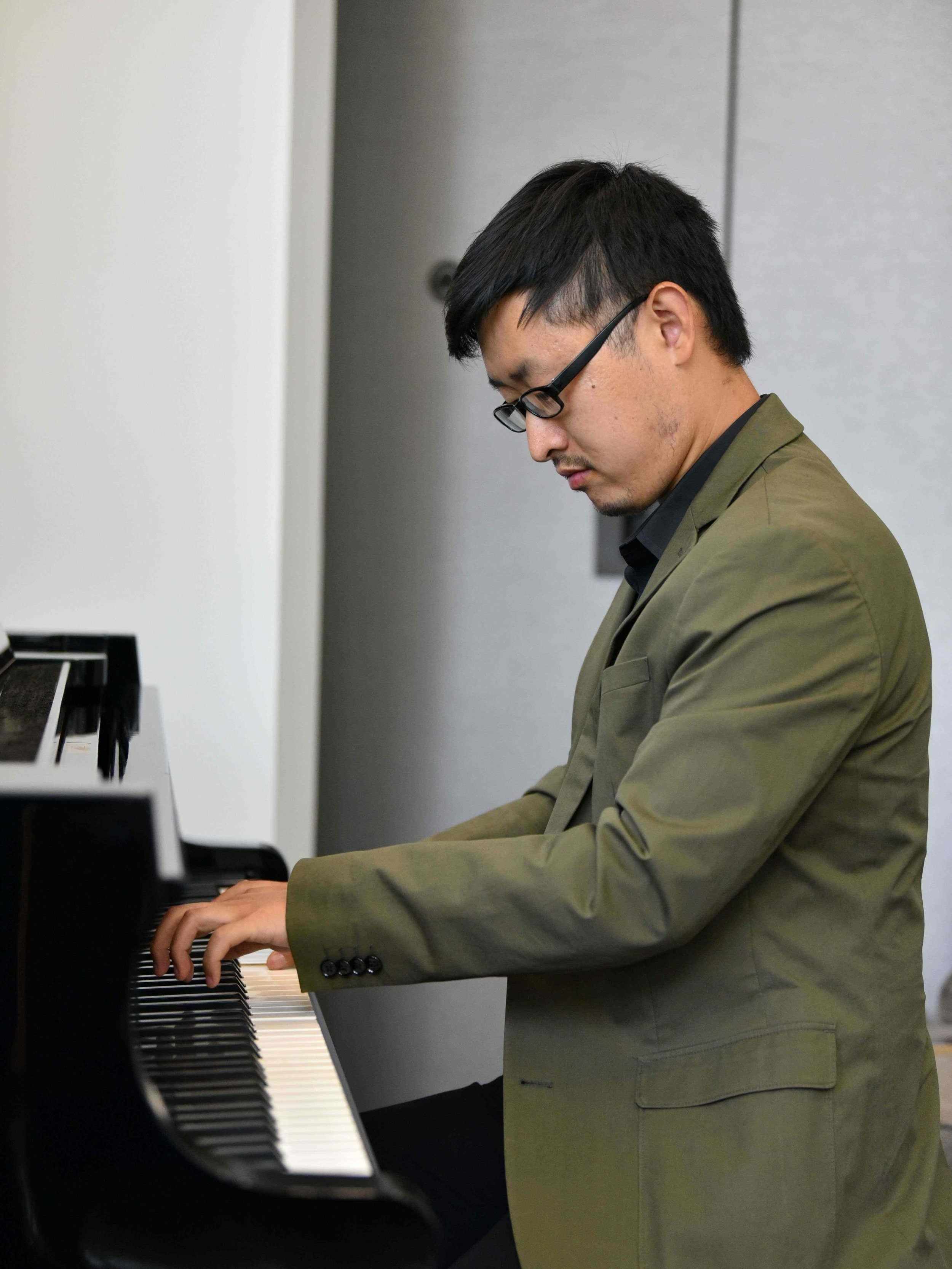
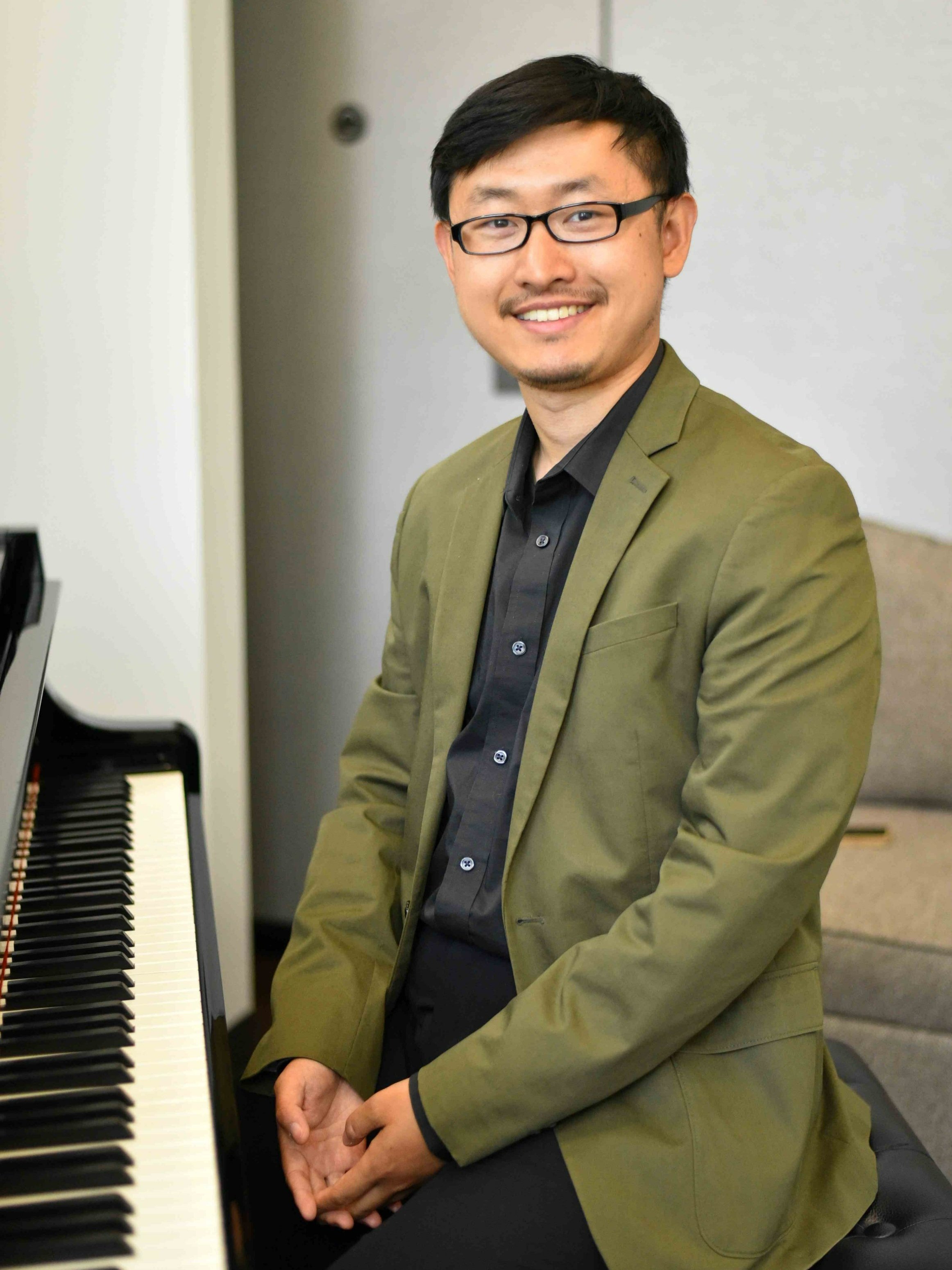
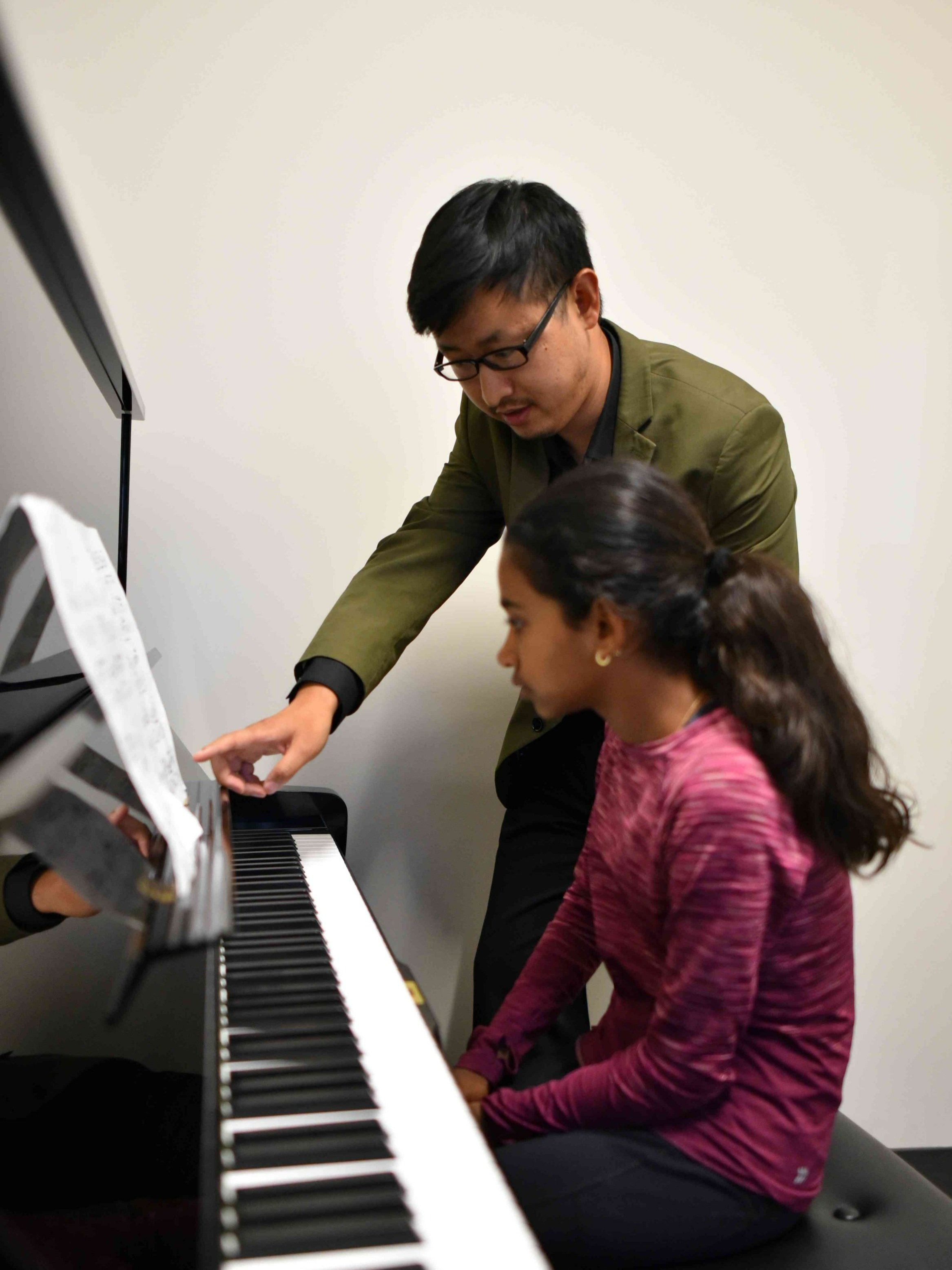
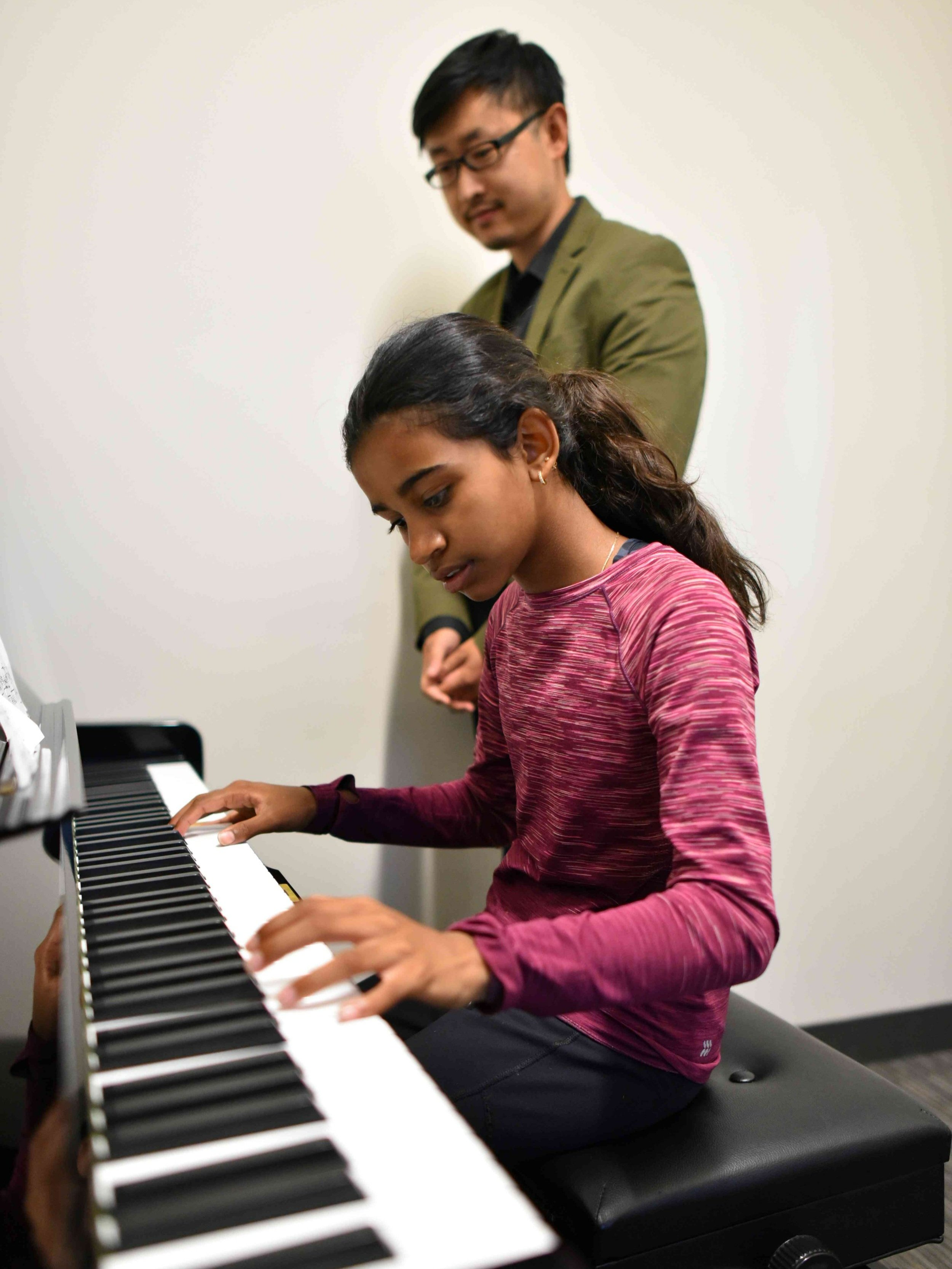
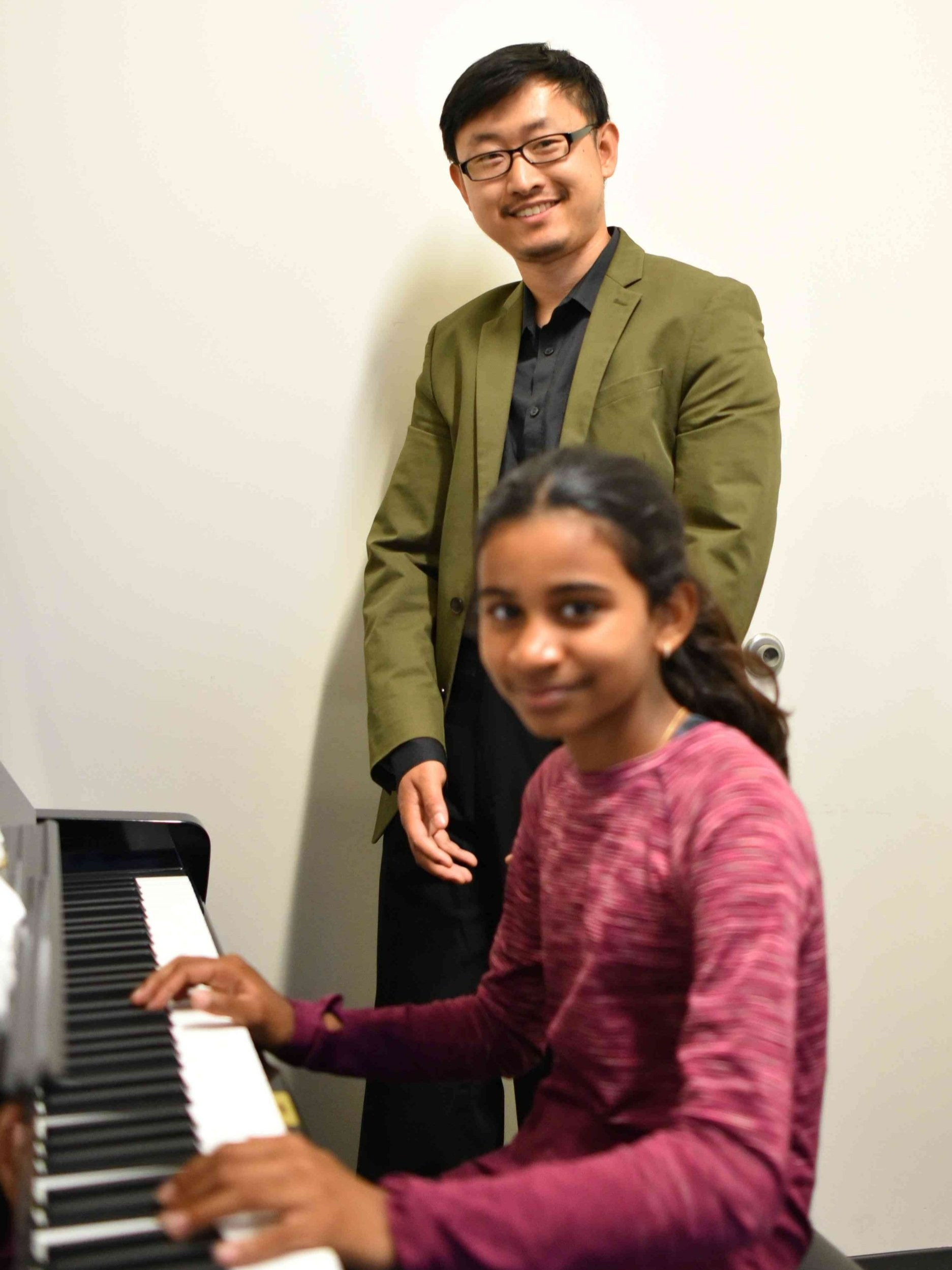
Meet Dr. Yifan, a Distinguished New Mozart faculty. He received his DMA from Iowa University and MM from Manhattan School of Music. Scroll down to listen to his recently released album.
1. How old were you when you started taking music lessons and which instrument did you start with?
I started my first piano lessons when I was five years old in my hometown in China. Before I was formally introduced to the piano, I had a strong interest in keyboard instruments and classical music. At that time there was an electronic keyboard in my room, and I would try to reproduce the melodies and harmonies I had heard and play it on my keyboard without any sheet music. It was this keen interest that made me and my parents decide to start my professional piano studies.
2. When did you start taking music seriously and who/what inspired you to become a musician and music teacher?
I started my more formal and serious piano studies at the age of five with a very authoritative piano teacher in my hometown. I completed the highest level of the piano proficiency exam in China at the age of 11 with excellent grades. In addition to my own interest, my mother has given me tremendous help and encouragement during my piano studies. As a local music teacher, she fully understood my love for piano and provided me endless financial and emotional support.
3. Tell us about your musical and teaching background.
As a piano performer, I was admitted to the Tianjin Conservatory of Music (China) in 2011 with the first place in piano major, won the first national scholarship for four consecutive years and obtained my bachelor’s degree with merit. I received the Master of Music degree in Piano Performance from the Manhattan School of Music in New York City in 2018, where I studied intensively with Steinway artist and Grammy Award nominee Dr. Joanne Polk, and held two successful solo piano recitals in New York City. I completed my D.M.A (Doctor of Musical Arts) at the University of Iowa in May 2023, and released a solo piano CD at the same year, premiering solo piano works by Ignaz Moscheles, which were well received by my professors in UI and the public. During my studies I gave four solo recitals and six chamber music concerts in Iowa City, and also been involved in various public performances, such as charity concerts in hospitals, nursing homes, churches, museums, and local government institutions.
As a piano educator, I have accumulated over eleven years of extensive teaching experience, having spent long periods of time at the Rome Piano School in New York City and at Kirkwood Community College in Iowa, effectively and professionally teaching piano students of all ages, from young children to college students and adults, and helped them develop an interest and confidence in playing piano through approachable and creative teaching methods.
4. What do you hope to achieve in teaching students?
As a piano teacher, I sincerely hope that my students will get pleasure and satisfaction from learning piano, and not just as a task to be completed.
Music is something to be enjoyed and perceived, and only a deep desire and willingness to learn will lead to continuous progress. Therefore, I will do my best to cultivate the passion and interest in piano music through different ways according to the personality of each student.
Secondly, passive learning is usually not the best way to go. I want to guide students to have their own perception and independent thinking about music. I will try to ask more questions in lessons and lead the students step by step to find the answers and to memorize some fundamental knowledge through their own analysis. The role of the teacher is more to guide the student through the right path to acquire the professional skills that will empower them to explore their own musical journey.
Finally, a solid foundation is the cornerstone of any learning process. I will work hard to provide students with a good foundation in the beginning in terms of hand positions, seating requirements, and basic music theory, so that they can be more comfortable and make faster progress in more in-depth studies later on.
5. What do you love most about teaching?
I enjoy teaching piano and working with my students. Having been a piano student for over 25 years, I hope to share the experiences and methods I have learned with my students so that they can have a more professional and effective learning environment. Teaching is also a mutually beneficial process in which I can enrich my own musical knowledge through my students' perspectives and insights. More crucially, seeing my students' excitement about their progress, their growing love for piano music and their proficiency and confidence in playing is the most delightful and heart-warming thing in my teaching process.
6. Do you have a practice tip you want to share with our students?
Definitely! Although a lot of practice is the most important way to progress and improve your piano skills, it is also crucial to use your time more wisely and to practice in a more efficient way.
First, slow practice does not mean it will take up more time, but will help us maintain an accurate and consistent beat while paying more attention to the details in the music. Secondly, it is important to have a detailed and realistic plan before each practice session, such as goals to be achieved or problems to be solved, and try to stick to those goals during the practice. Finally, practice sessions should not be too long. I recommend taking a five to ten minute break after every half hour or one hour of practice to ensure that your body, arms and wrists are relaxed.
7. What do you enjoy doing when you’re not teaching, practicing, or performing?
Besides piano, I also like photography, swimming and traveling. I enjoy exploring more different places, landscapes, cultures and music. In my spare time, I also love to compose and produce electronic music by using DP9 and Logic Pro, and I already have some original works that lean towards electronic and jazz styles.
Dr. Yifan released a piano solo CD last month, and premiered several piano works by Ignaz Moscheles. Here are the links to the mp3 files:
Les Charmes de Londres, Op. 74 (1827)
1. Les Charmes de Londres, Op. 74 (7:10)DOI: https://doi.org/10.25820/e2xy-7k03
Rondeau expressif on a Favourite Theme of Gallenberg, Op. 71
2. Rondeau expressif on a Favourite Theme of Gallenberg,Op. 71 (7:34) DOI: https://doi.org/10.25820/561a-p513
Variations on a Theme of Handel, Op. 29 (1814)
3. Variations on a Theme of Handel, Op. 29 (9:10) DOI: https://doi.org/10.25820/zpyf-jp97
Fantasia Brillante on Themes of Benedict’s Opera “The Bride of Venice”
4. Fantasia Brillante on Themes of Benedict’s Opera “The Bride of Venice” (9:27) DOI: https://doi.org/10.25820/rm8v-x528
Airs from the Grand Opera of Fidelio, Book II (1830)
5. Overture: To the 2nd Act (4:09) DOI: https://doi.org/10.25820/qrfm-d491
6. Florestan’s Air (4:55) DOI: https://doi.org/10.25820/zc9f-1x75
7. Duett (4:59) DOI: https://doi.org/10.25820/fe7k-k747
8. Terzett (5:35) DOI: https://doi.org/10.25820/4ayp-n444
9. Duett (2:37) DOI: https://doi.org/10.25820/rrwy-eq93
10. Finale of the 2nd Act (2:02) DOI: https://doi.org/10.25820/x1da-tx51
11. The Final Chorus (3:49) DOI: https://doi.org/10.25820/eznp-6v29
